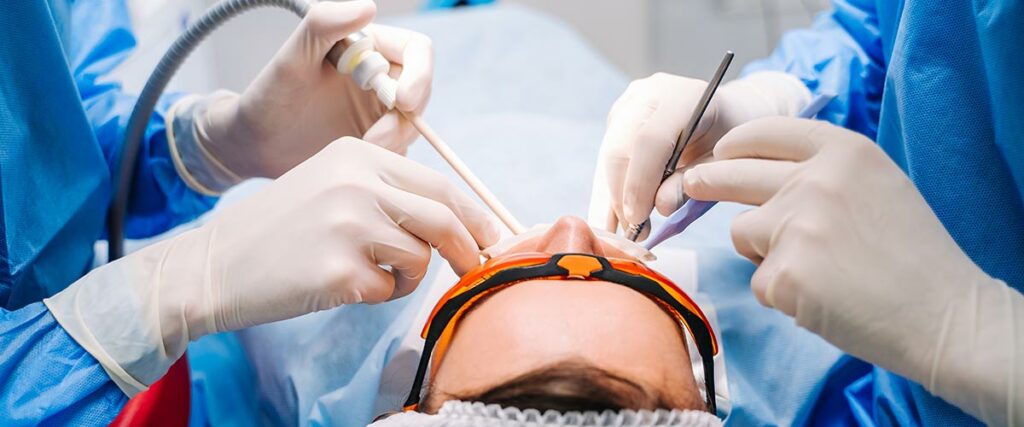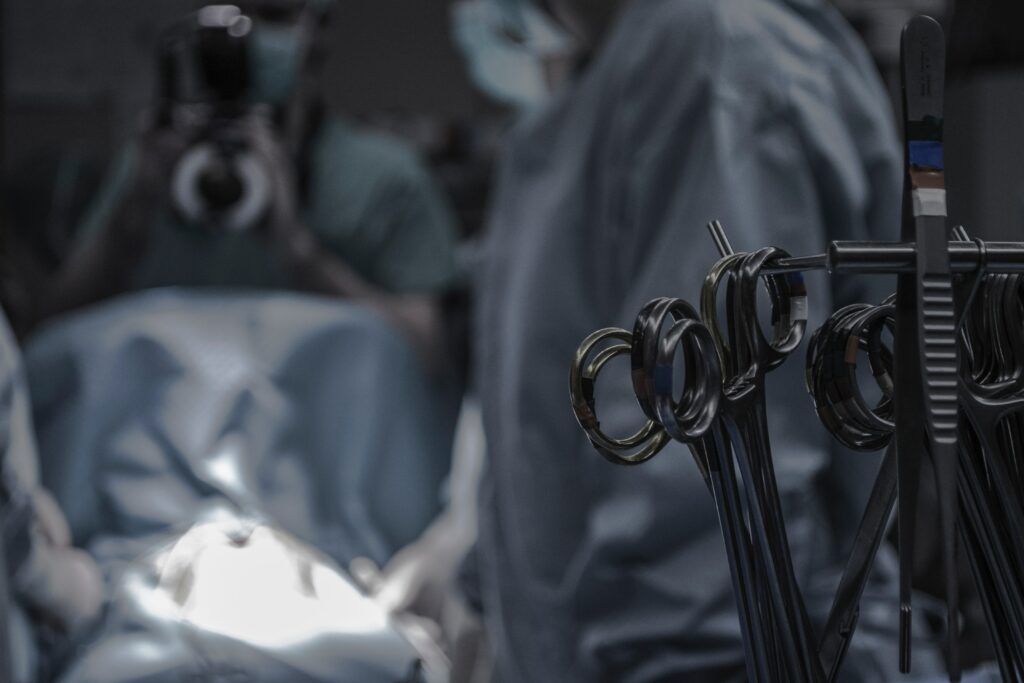Dental surgery is a standard procedure often performed to correct various dental problems. Dental experts understand there are many different types of dental surgery, each with its unique risks and benefits. This post will discuss the most common dental surgical procedures. We will also discuss the risks and benefits of each course so that you can make an informed decision about whether or not to undergo surgery.

What Is A Dental Surgery?
A dental surgical procedure is a type of operation that is performed to correct a problem with the teeth or gums. Common reasons for having this type of surgery include untreated tooth decay, infection, gum disease, and teeth that are overcrowded or misaligned. In some cases, dental surgery may also be necessary to prepare the mouth for dental implants or to remove impacted wisdom teeth.
No matter the reason, it is essential to consult with a qualified dentist or oral surgeon before undergoing any dental surgical procedure. This way, you can be sure that the operation is being performed for the right reasons and that you are getting the best possible care.
What Are The Different Types Of Dental Surgery?
There are many different types of dental surgery, but some of the most common procedures include:
Tooth Extractions
Tooth extraction is a surgical procedure that removes a tooth from the mouth. The tooth may be removed because it is decayed, diseased, or fractured. It may also be removed to make room for dental implants or to prepare the mouth for orthodontic treatment. An oral surgeon or a dentist generally performs tooth extractions.
The procedure is usually performed under local anesthesia, numbing the tooth’s area. In some cases, general anesthesia may be used. During the process, the surgeon makes an incision in the gum tissue and removes the tooth. The incision is then closed with stitches. Recovery from a tooth extraction typically takes one to two weeks. After the procedure, it is essential to follow your dentist’s instructions for care and avoid activities that may cause bleeding or irritation.
Root Canals
A root canal is a procedure used to treat an infected tooth. The method involves removing the damaged or diseased tissue from inside the tooth. Once the tissue is removed, the tooth’s interior is cleaned and sealed. Root canals are usually performed by an endodontist, a type of dentist specializing in this procedure.
Root canals are usually performed under local anesthesia. The procedure typically takes one to two hours to complete. Recovery from a root canal is generally quick, and most people return to normal activities within a few days. However, avoiding chewing on hard foods or using tobacco products for at least 24 hours after the procedure is essential.
Dental Implants
A dental implant is a surgical procedure used to replace a missing tooth. The method involves placing a metal post into the jawbone and attaching an artificial tooth to the base. Dental implants are usually performed by an oral surgeon or a periodontist, a type of dentist specializing in this procedure.
Dental implants are usually performed under local anesthesia. The procedure typically takes one to two hours to complete. Recovery from a dental implant is generally quick, and most people return to normal activities within a few days. However, avoiding chewing on hard foods or using tobacco products for at least 24 hours after the procedure is essential.
What Should You Expect If You Need Dental Surgery?
If you or a loved one needs to undergo a dental surgical procedure, it is essential to consult with a qualified dentist or oral surgeon. This way, you can be sure that the operation is being performed for the right reasons and that you are getting the best possible care.
No matter what type of dental surgery you or a loved one needs, it is essential to be prepared for the procedure. This means that you should completely understand what the system will entail and what the recovery process will be like. Following your dentist’s instructions for care after the procedure is also essential.
Caring For Your Loved One Post Dental Surgery
After a loved one undergoes a dental surgical procedure, it is crucial to provide them with the care they need to recover properly. You should ensure they get plenty of rest and avoid strenuous activity. You should also ensure they eat soft foods and avoid using tobacco products.
Providing your loved ones with emotional support during recovery is essential. This means understanding and patience as they adjust to their new oral health situation. It is also necessary to be available to answer any questions about their condition or the care they need to provide.
Final Thoughts
Dental surgery is a necessary procedure for many people. It is essential to be prepared for the design and to understand what the recovery process will be like. Following your dentist’s instructions for care after the procedure is also crucial.




